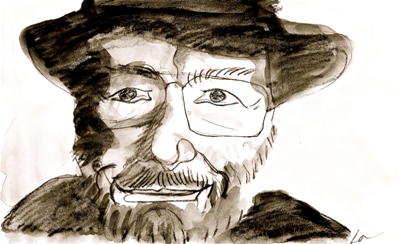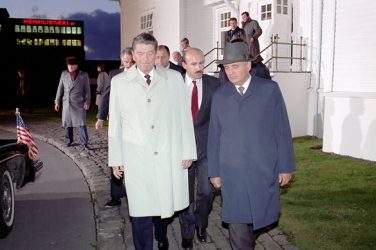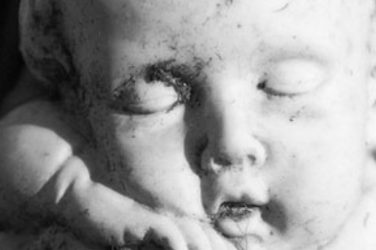Historian, writer and public intellectual Umberto Eco is concerned with the complexity of life rather than simple truths: a European warning voice when stereotypes find their way into the public discourse.
Umberto Eco
A closer look at the works of Italian writer and historian Umberto Eco reveals: his novels are only the tip of the iceberg. Eco, who recently published his eighth novel and turned eighty, is an outspoken advocate for intercultural understanding and an intellecctual who encourages to define European identity beyond an economic and political scope.
“Take that, Umberto Eco!”
About a year ago Paul Krugman, economist and columnist for the New York Times, discovered to his own surprise that he was chosen “most influential left of centre European thinker” in a survey conducted by Social Europe Journal. At the bottom of Mr. Krugman’s astonishment seems to lie more than his U.S. citizenship. The title “Take that, Umberto Eco” under which Krugman commented on this survey suggests a further reason: the columnist’s reaction was apparently amplified by the fact that Italian author and all-rounder Umberto Eco was considered only the sixth most influential. Apart from the fact that the list includes such remarkable thinkers as Jürgen Habermas and ignoring that the lower ranks reveal a certain crudeness in its making: awarding Mr. Eco the title of a Top European is an impulse I can understand, and I’d like to follow this lead.
The simplification of truths
In his latest book, The Prague Cemetry, Eco shows his expertise on yet another European epoch and casts this long European century in the fictitious figure Simon Simonini. Eco’s protagonist – a rancorous misanthrope and the only fictitious character in the otherwise historical novel – rants hateful racist tirades about French, Germans, Italians and above all Jews. In the atmosphere of intrigue and conspiracy Simonini forges the infamous Protocols of the Elders of Zion: the protocols are a collection of minutes that seem to attest to a Jewish plan for global domination. Despite their identification as a forgery shortly after their making, the protocols were used to bring inconceivable suffering upon the lives of millions, not least through their use by the Nazis. By sculpting the character of the wicked Simonini, Eco exemplifies the detrimental effect that the simplification of truths had not only in the history of Europe but can still have today. A topic that concerns Mr. Eco and on which he often speaks out.

Barely one month after 9/11, Eco published an article in which he reminded the reader to be understanding and tolerant of cultural differences. While others were painting only in black and white (and some of them still are), Eco urged us to treat each other with respect, to refrain from double standards and to keep in mind that the extremists that are found in every society are the shared concern of moderates everywhere: “Shouldn’t we respect the Islamic world by being reminded that it has given us men like Avicenna […] and Averroes, as well as Al-Kindi, Avenpace, Avicebron, Ibn Tufayl, or the great historian of the 14th century, Ibn Khaldoun, whom the west considers as the father of social sciences.” While his ideas are complex, his message is clear: because the truth is not simple, the moderates meet in the middle. The extremes remain tangent to each other on the brink.
World visions can conceive of everything except alternative world visions, unless it’s in order to criticise them and to show their inconsistency.
An interview with the Paris Review provides insight into Eco’s ideas about the complexity and interlacement of life’s truths as sometimes unfathomable through a theoretical approach; they can only be grasped in an effigy of life itself – within a story. He says about The Name of the Rose, his first and most famous novel: “It was one of those cases in which, when you are unable to construct a theory, you narrate a story. And I believe that in The Name of the Rose, I did, in narrative form, flesh out a certain theory of the comic.” These two dichotomies: theory – life, extreme – moderate seem to be at the core of Eco’s thought: a quote that lucidly exemplifies this point of view can be found in his book Semiotics and the Philosophy of Language: “World visions can conceive of everything except alternative world visions, unless it’s in order to criticise them and to show their inconsistency.”
A complex vision of Europes
Eco has had his share of experience, which allows a deeper understanding of this stance on visions with global pretensions. Having grown up under the indoctrination of fascist Italy, Eco, today, reminds us of a reality that is otherwise easily forgotten: the seventy-year absence of war on a continent of war-torn origins and history. But he also reminds us of the beauty that lies in overcoming simple notions of cultural difference as well as the merging of a variety of cultures into one. Most prominent and widely cited in this context was his plea in the Guardian to make the Erasmus program “compulsory – not just for students, but also for taxi drivers, plumbers and other workers” and his understanding of European integration also as a “sexual process.”
The Prague Cemetery is one in a chain of many appeals not to fall for simplified truths and to acknowledge the complexity of life.
Eco demonstrates a passion for this continent, its culture(s) and its people. This passion reverberates in his love for the middle ages. In the same Paris Review interview cited earlier, he said: “To me, they were not the Dark Ages. They were a luminous time, the fertile soil out of which would spring the Renaissance.” Eco strives to understand the beauty of an era rather than dismissing it. He points to a period that formed the European continent and its citizens, to grasp in its traits – as dark as they might be – the merit it yields and relates it to us and to the present. This understanding of history and the concrete rather than the abstract or the general is what makes Eco an important public intellectual in Europe today.
However, it would be wrong to limit Umberto Eco to the role of the polymath he undoubtedly is: he sees the value of his writings not only within the parameters of their respective genre, be they newspaper articles, scientific essays, philosophical literature or novels. By continuously placing them within the scope of his ideas about fairness and tolerance, Eco assumes the role of a quiet yet sage and discerning admonisher. The Prague Cemetery is one in a chain of many appeals not to fall for simplified truths and to acknowledge the complexity of life. There looms the question of the paradoxically seeming success of the forged protocols. Eco provides this explanation: “[T]hey were not creating new ideas. They were reinforcing previous prejudices.” Something to keep in mind.
Cover Photo: Blaues Sofa (Flickr); Licence: CC BY 2.0





